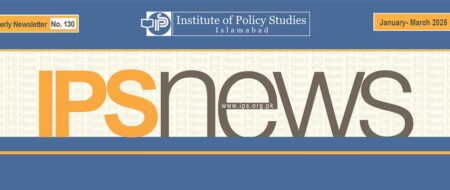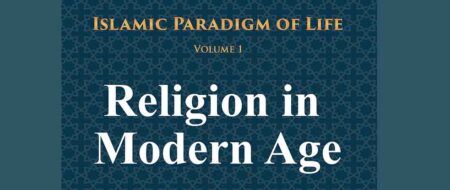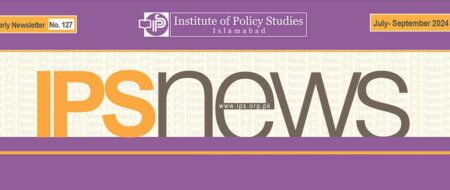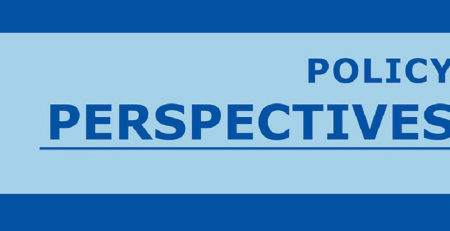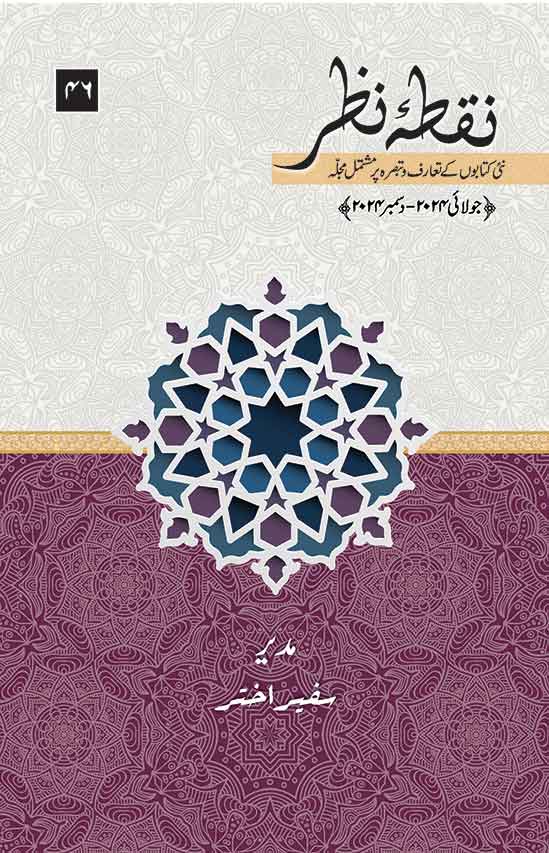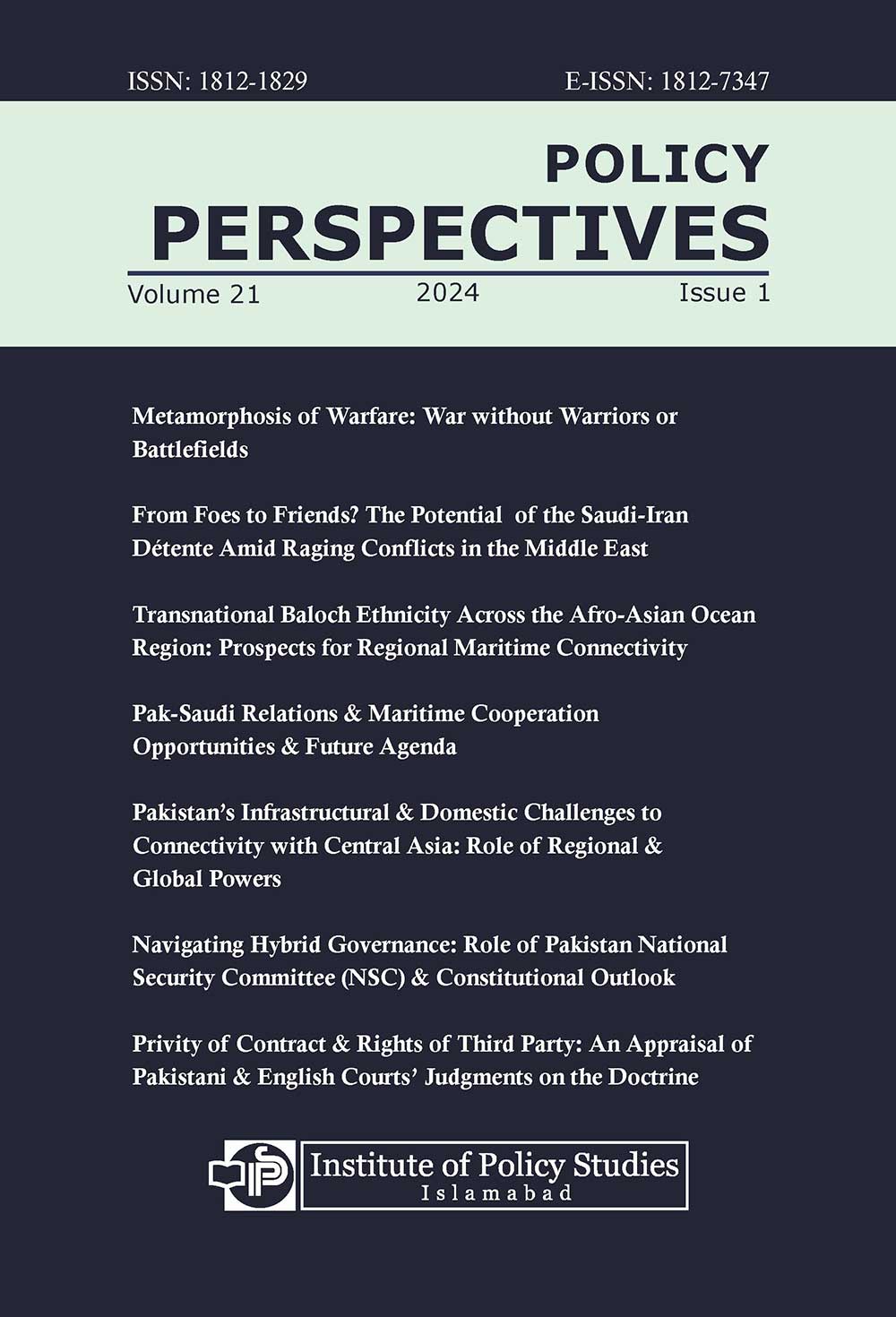Policy Perspectives (Vol 14, No. 2)
| Editor: | Khalid Rahman |
| Volume: | 14 |
| Number: | 2 |
| Pages: | 170 |
| Retail Price (Pak): | PKR600 |
| Annual Subscription: | PKR1000 |
| Export Price: | $60 (per copy) |
| Annual International Subscription: | $120 |
The latest edition of peer-reviewed IPS’ flagship journal Policy Perspectives – disseminating the research carried out by IPS and its associates on diverse range of current and evolving topics – is out now and is widely available for the readers in Pakistan and abroad.
The issue combines deliberations upon important global theoretical debates as well as discourse on current regional and international matters of significance.
The opening piece ‘Pakistan-China Relations: CPEC and Beyond’, which is based on the proceedings of a session with a similar title organized by IPS and addressed by H.E. Sun Weidong, Chinese ambassador to Pakistan, Raja Zafar-ul-Haq, leader of the house, Senate of Pakistan and Executive President IPS Khalid Rahman, highlights that while CPEC has emerged as the most happening and talked about aspect of the of the ties between the China and Pakistan; the relationship is much more broad-based, wide-ranging and all-encompassing.
The second article ‘Market, Regulation and Sustainability’, which is contributed by Prof Dr Naheed Zia Khan, former dean, Faculty of Social Sciences, Fatima Jinnah Women University (FJWU), Rawalpindi, contends that market hegemony has over time overwhelmed collective wisdom and undermined individual and collective ability to take action in the face of multi-pronged threat to sustainable development, which is a great peril to civilization and society.
The next piece ‘Indian Secularism and Religious Minorities: The Case of Muslims’ written by Executive President IPS Khalid Rahman, argues that the Indian constitution on one hand assures personal freedoms and declares the state as secular but on the other carries contradictory indications of anti-religious objectives and prominence of Hinduism. This confusion is not only threatening for minorities in India but also can have far-reaching effects on the region and the world at large.
‘The Breakdown of Socialization and Political Re-assertiveness of European Far-Right’ written by Dr Bakare Najimdeen from Centre for International Peace and Stability (CIPS), National University of Sciences and Technology (NUST) Islamabad, discusses populist politics and re-assertiveness of far-right in Europe, concluding that as much as far-right populism can upend public policy debate, it can equally pose serious challenges to the matters of foreign policy.
‘Multilateral Export Control Regimes State-of-Affairs and Prospects’ contributed by Prof Dr Zulfqar Khan, head of Strategic Studies Department, NUST, Islamabad and Dr Rubina Waseem, NUST, analyses existing effectiveness of multilateral export control regimes (MECRs), deliberating that while states like India, Pakistan, Israel, and North Korea are not party to these regimes, they managed to attain their nuclear weapons capabilities by exploiting the weak links of MECRs.
The sixth article ‘Maintaining International Peace and Security by Regulating Military Use of Outer Space’ by Dr. Saadia Zahoor, senior lecturer, Department of Law, Bahria University (BU), Islamabad. maintains that while international law calls for only ‘peaceful use’ of space, there is a conflict of interpretation regarding the phrase which is often limited to ‘non-military’ or ‘non-aggressive’ use, thus in consequence of such lacunas, the space has been used regularly for military purposes by employing technology to locate and target enemies.
The last article ‘Rising China and its South Asian Neighbors: Evolving Dynamics and the Outlook’ from Talat Shabbir, who is pursuing Ph.D at the School of International Relations & Politics, Quaid-i-Azam University (QAU), Islamabad, surveys China’s relations with its South Asian neighbors in the recent decade or so, and finds an intensification of economic and commercial cooperation between them.
It is pertinent to mention here that alongside the printed copies, Policy Perspectives is also available online to the global audience through Pluto Journals on JSTOR (http://www.jstor.org/journal/polipers) and on Factiva and affiliated international databases through Asianet-Pakistan. Moreover, It is also indexed in International Political Science Abstracts (IPSA) database through both the print edition (published by Sage) and on the Ebsco and Ovid websites.
Contents
|
||
| Editor’s Note | 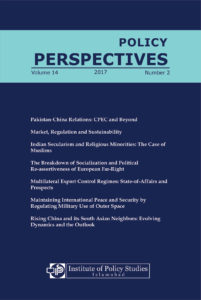 |
|
| Pakistan-China Relations: CPEC and Beyond
Sun Weidong et.al |
||
|
Market, Regulation and Sustainability Naheed Zia Khan |
||
|
Indian Secularism and Religious Minorities: The Case of Muslims Khalid Rahman |
||
|
The Breakdown of Socialization and Political Bakare Najimdeen |
||
| Multilateral Export Control Regimes: State-of-Affairs and Prospects Zulfqar Khan and Rubina Waseem |
||
|
Maintaining International Peace and Security by Regulating Military Use of Outer Space Saadia Zahoor |
||
|
Rising China and its South Asian Neighbors Evolving Dynamics and the Outlook Talat Shabbir |
||
|
Summary of Dialogue at IPS |
||



